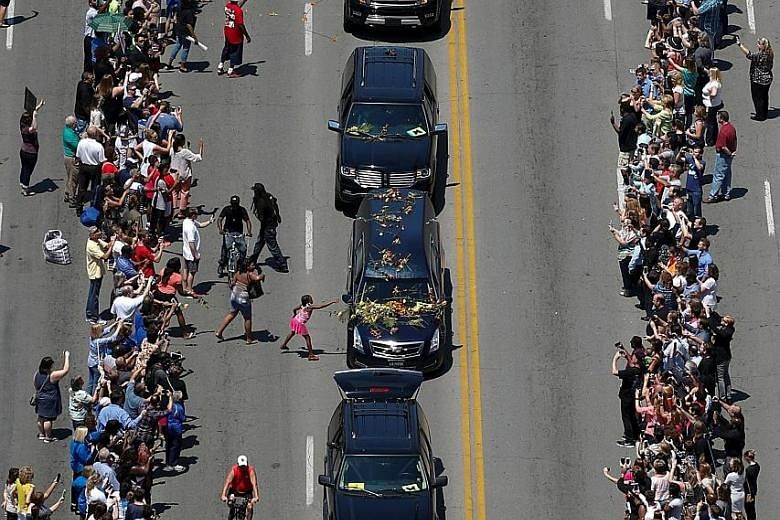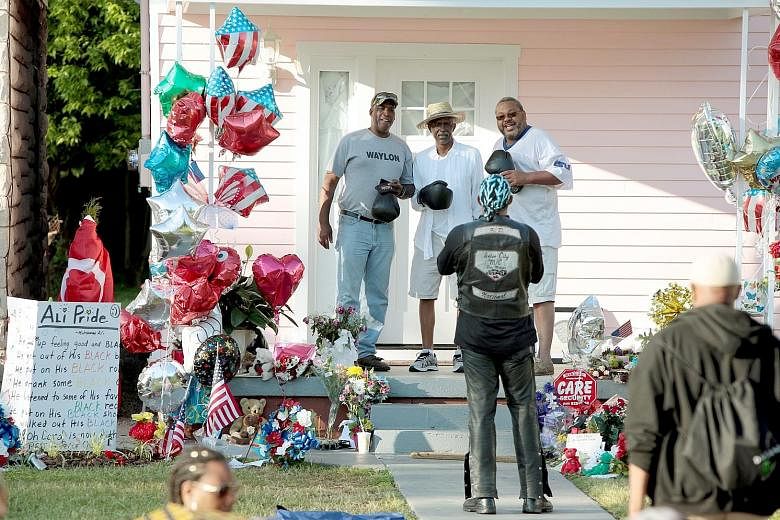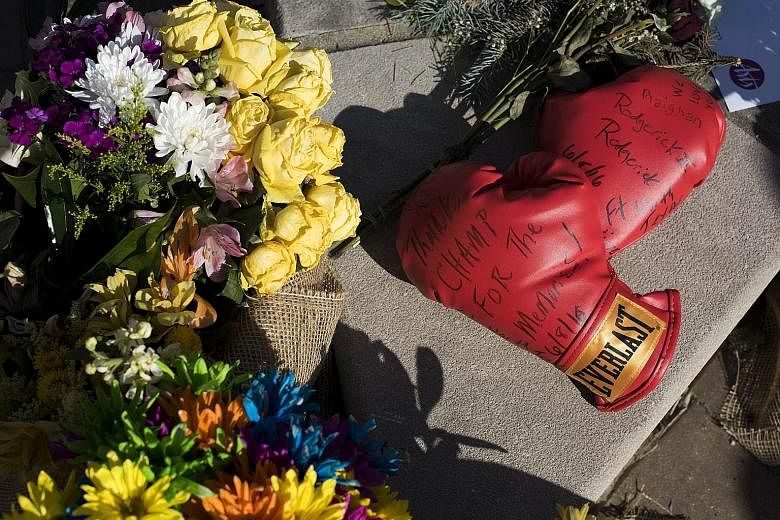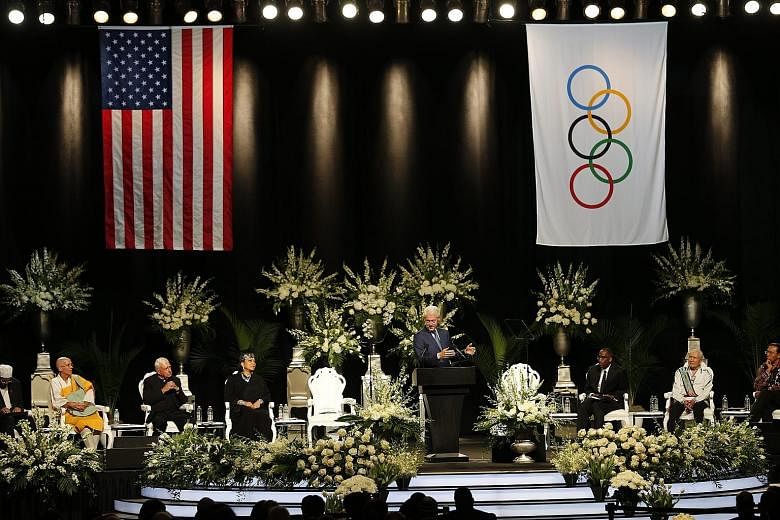LOUISVILLE (Kentucky) • "Muhammad Ali was not just Muhammad Ali the greatest, the African-American pugilist; he belonged to everyone," wrote the late poet Maya Angelou in 2001 about the boxer. "That means that his impact recognises no continent, no language, no colour, no ocean."
In its latest issue, Time magazine's picture spread and story had this headline: ALI. Champion. Outcast. Hero. Legend.
More than just a champion in the ring, Ali became an outcast to some for refusing to be conscripted into the US Army during the Vietnam War. Ali the hero played a role as an ambassador of peace, starting in 1985 when he travelled to Lebanon to try to secure the release of four American hostages.
In 1990, he was credited with securing the release of more than a dozen American hostages from Iraq just days before the start of the Persian Gulf War and was nominated for the Nobel Peace Prize in 1997.
He also used his fame for charity work, helping to raise millions of dollars for food and medical relief around the world. His last known public appearance was at a Parkinson's Disease fund-raiser on April 9 in Phoenix, Arizona.
At his funeral, he was eulogised as a legend in a grand sports arena by, among others, a priest and an imam, a rabbi and a monk, a former United States president and a famous comedian.
Speakers at the memorial included Christians, Jews, Mormons, Buddhists and Native Americans in an emphatic, if not explicitly spoken, renunciation of sectarianism and embrace of ecumenism.
"Muhammad Ali was the heart of this city - the living, breathing embodiment of the greatest that we can be," said rabbi Joe Rapport at the memorial.
As a professional boxer spanning 21 years, Ali's fight record showed an impressive 56 wins, 37 by knockouts, and five losses.
Apart from his fights, he also attracted fans from around the world with his gift of the gab.
He says of his career: "It's just a job. Grass grows, birds fly, waves pound the sand. I beat people up.
"At home, I am a nice guy but I don't want the world to know. Humble people, I've found, don't get very far."
At the turn of the millennium, BBC viewers in Britain voted him the Sports Personality of the Century. Sports Illustrated in the US gave him a similar award. At his peak, few would argue his was the most recognisable face on the planet.
In 2005, Ali received America's two highest civilian awards - the Presidential Citizens Medal and the Presidential Medal of Freedom - for "exemplary services" to the country.
The same year saw the opening of the non-profit Muhammad Ali Center in Louisville, Kentucky, which promotes peace, social responsibility and respect.
"Muhammad Ali opened our eyes to the evil of racism, to the absurdity of war," Monsignor Henry Kriegel, the pastor of St Patrick and St Hedwig Catholic churches in Erie, Pennsylvania, saidof the man who was a role model for both the African American and Muslim communities.
He was also much admired in the Muslim world, with reports that normal activities in the streets of Turkey to Morocco to Pakistan would grind to a halt when he had his big fights in the ring that was broadcast live on television or radio.
"The passing of Muhammad Ali has made us all feel a little more alone in the world," said Dr Sherman Jackson, a Muslim scholar at the University of Southern California. "Something solid, something big, beautiful and life-affirming has left this world."
Added US President Barack Obama: "It's very rare where a figure captures the imagination of the entire world. He was one of a kind and in my book, he'll always be the greatest."
Ali touched many, even those who initially did not see eye to eye with him.
Japanese professional wrestler Antonio Inoki took Ali on in June 1976 in what was thought to be an exhibition match. Problem was, Inoki took the match so seriously that he landed more than 100 kicks on the boxer - which resulted in blood clots that nearly saw Ali's leg amputated.
Despite the ill-tempered bout, the pair became good friends. Inoki was invited to Ali's wedding a year later.
When Ali was negotiating the release of American hostages in 1990, Inoki was also working to secure the release of 41 Japanese hostages held under similar conditions.
Said Inoki, now 73, who went on to a career in politics, of Ali: "Thanks to Ali, I was able to do a different kind of politics and diplomacy. For that, I thank him."
REUTERS, NEW YORK TIMES, GUARDIAN




